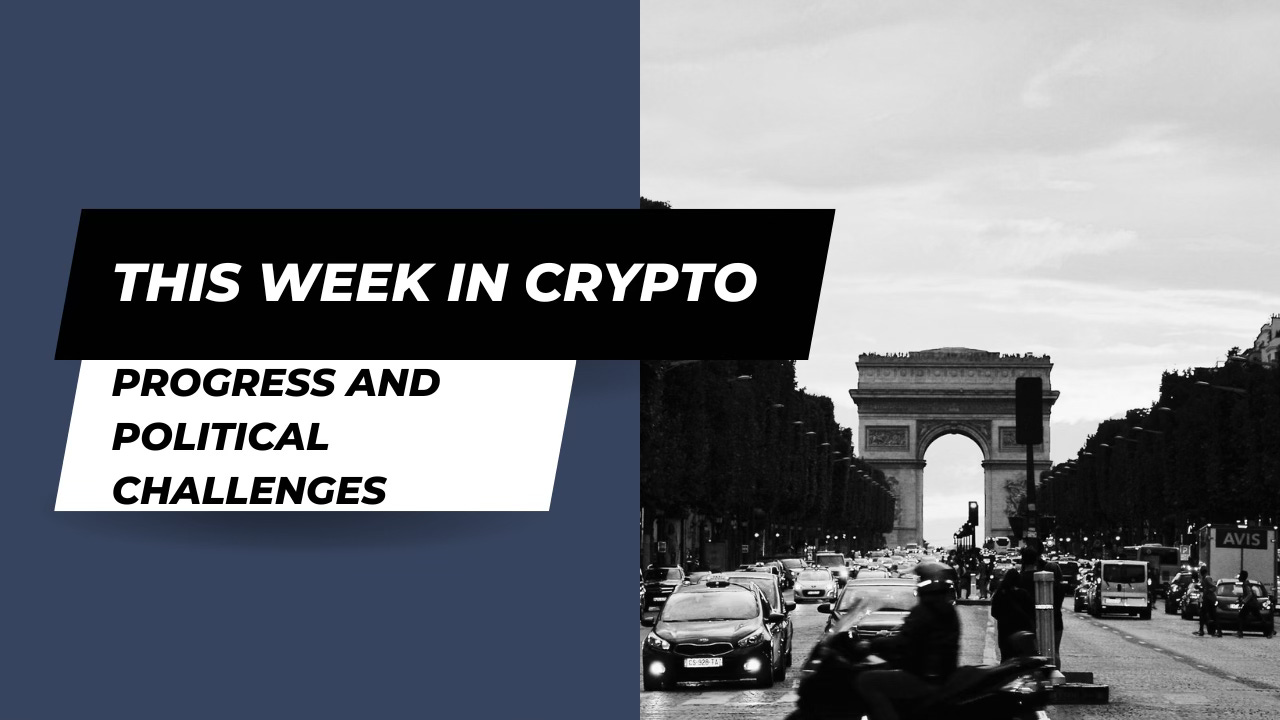This week has been marked by notable advancements and challenges in the crypto and blockchain sectors, highlighting the industry's ongoing evolution and the integration of technology across various domains.
1. Sony Launches Soneium Blockchain
In a strategic move to democratize Web3 technology, Sony unveiled its own blockchain, Soneium, in partnership with Singapore-based Startale. The upcoming Soneium testnet aims to provide a platform for developers to experiment with and build applications, with a vision to decentralize the internet and enhance user engagement with meaningful use cases. The initial focus will be on onboarding Web3 core users, followed by the integration of various Sony products in subsequent years.
The testnet will utilize optimistic rollup technology and the Astar zero-knowledge Ethereum virtual machine, aiming to support both fungible and non-fungible tokens (NFTs). Sony's ambition includes safeguarding content rights and creating new profit-sharing models for creators, as well as exploring synergies with its other business segments.
2. Siemens Issues €300 Million Digital Bond
German tech giant Siemens successfully issued a €300 million digital bond, further establishing its presence in the blockchain space. This issuance follows a previous €60 million digital bond in 2023, showcasing Siemens' commitment to digital financial solutions. The bond, with a one-year maturity, was settled through the private permissioned blockchain of SWIAT using the Bundesbank’s Trigger Solution. The transaction was executed fully automatically within minutes and in central bank money, underlining the company's innovative approach in streamlining securities transactions.
DekaBank acted as the bond registrar, with other financial institutions such as BayernLB, DZ BANK, Helaba, and LBBW participating as investors. Deutsche Bank facilitated the central bank money settlement, illustrating the collaborative efforts within the financial sector to embrace blockchain technology.
3. Telegram CEO’s Legal Troubles Affect TON Blockchain
Pavel Durov, CEO of Telegram, is set to appear in a French court amidst investigations related to alleged crimes on the platform. His arrest has raised concerns about the future of the affiliated TON blockchain (The Open Network) and its native token, toncoin (TON). The announcement of Durov’s arrest led to a decline in TON’s value, as analysts pointed out the token's heavy reliance on its integration with Telegram.
Despite boasting over 350 validators globally, uncertainty looms regarding the network's resilience if major governments target it following Durov’s arrest. The TON Society, an organization connected to the blockchain, has publicly denounced Durov's arrest and called for his release. Furthermore, the TON blockchain experienced a significant outage, attributed to increased network traffic during a recent airdrop of a TON-based memecoin, causing operational challenges.
4. Stellar Development Foundation Aids Refugees with Crypto
Denelle Dixon, CEO of the Stellar Development Foundation, discussed the use of the Stellar network in partnership with the UNHCR (United Nations High Commissioner for Refugees) to distribute monetary aid to refugees via stablecoins. This initiative allows refugees to access aid within minutes of receiving a text notification, demonstrating the potential of blockchain technology to solve real-world problems.
The system enables refugees to hold funds, cash out at MoneyGram locations, or transfer them to bank accounts, thereby enhancing their financial accessibility. Dixon emphasised the importance of creating stablecoin legislation to foster growth and stability in the crypto ecosystem, highlighting the need for regulation that supports technological innovation.
5. Political Developments and Regulatory Landscape
This week, discussions surrounding crypto regulation in the United States intensified, particularly with regard to the Senate Act aimed at providing clarity and stability for digital assets. CFTC Chair Rostin Behnam stressed the need for comprehensive regulations to protect consumers and establish guardrails similar to those in traditional financial markets. This call for regulation comes amidst growing concerns over the unregulated nature of the crypto market and its potential risks to investors. Additionally, lawmakers are deliberating on how to balance innovation with the necessary oversight to prevent misuse and fraud, an ongoing challenge that the industry faces as it matures.
Conclusion
The activities this week reflect the dynamic nature of the crypto industry, as traditional corporations like Siemens and Sony leverage blockchain technology to innovate in finance and web infrastructure. However, challenges such as regulatory scrutiny and operational disruptions remain pertinent, indicating that the landscape is still evolving and requires careful navigation as the industry matures.
For those navigating this rapidly evolving ecosystem, it is essential to have strategic guidance and robust support. EcoForge offers expert advisory services to connect with leading investors and academic institutions. As the intersection of Web3, politics, and finance becomes increasingly complex, reach out to EcoForge to build the connections and gain the insights needed for success in the crypto ecosystem.




